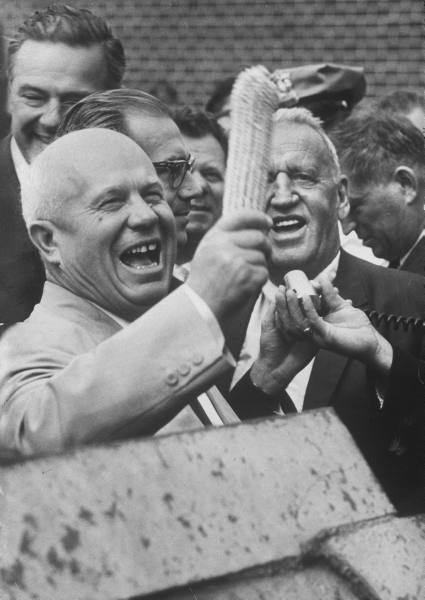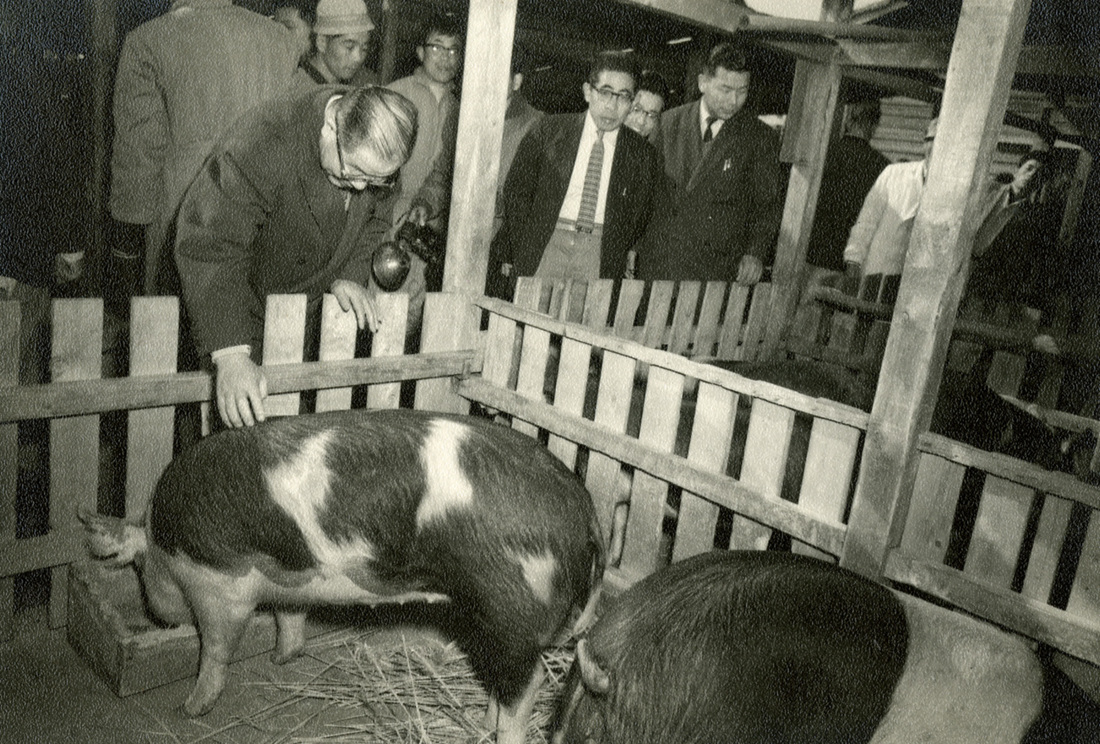"We are going to have to learn to live with people on the face of this earth. Foreign affairs in this day of modern transportation have become local affairs."
~Roscoe Marsden, Ames, Iowa farmer
who accompanied the hogs to Japan
who accompanied the hogs to Japan
Two Sides of Agricultural Diplomacy
In 1959, two Iowa farmers had similar ideas that were met with opposite reactions. Roswell Garst hosted Nikita Khrushchev on a visit to study American farming methods. Garst hoped that creating a market for U.S. agricultural surpluses might mitigate Soviet scarcity while boosting the U.S. farm economy. Critics denounced Garst as a communist sympathizer and his efforts to initiate trade with the Soviet Union encountered resistance within the U.S. State Department.
Conversely, citizens and government officials alike enthusiastically supported Richard Thomas' idea to ship hogs to Japan. Thomas hoped the humanitarian efforts would supply essential aid to Japanese farmers during typhoon recovery. Future exports might revive the lagging hog industry in Iowa (Business Week, 1959), and introducing Japanese farmers to U.S. grain as livestock feed might open markets for surplus grain (Des Moines Register, April 8, 2010). The U.S. also hoped to make Japan a Cold War ally.
Garst and Thomas had similar goals, but helping the Soviet Union proved more controversial than the hog lift.
Conversely, citizens and government officials alike enthusiastically supported Richard Thomas' idea to ship hogs to Japan. Thomas hoped the humanitarian efforts would supply essential aid to Japanese farmers during typhoon recovery. Future exports might revive the lagging hog industry in Iowa (Business Week, 1959), and introducing Japanese farmers to U.S. grain as livestock feed might open markets for surplus grain (Des Moines Register, April 8, 2010). The U.S. also hoped to make Japan a Cold War ally.
Garst and Thomas had similar goals, but helping the Soviet Union proved more controversial than the hog lift.
"In 1959, the Soviet Union's nuclear weapons posed an existential threat to America, and Communism seemed totally opposed to our concepts of freedom and democracy. Japan was a defeated former enemy who was no longer feared, and thus more worthy of assistance."
~Ambassador Kenneth Quinn


